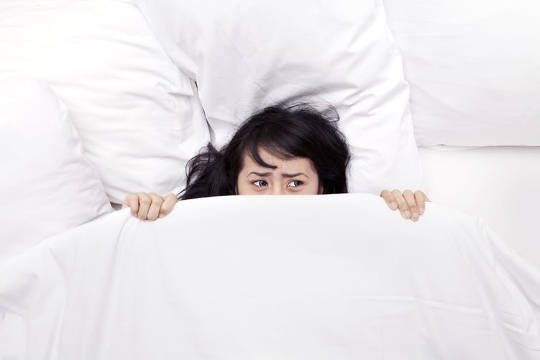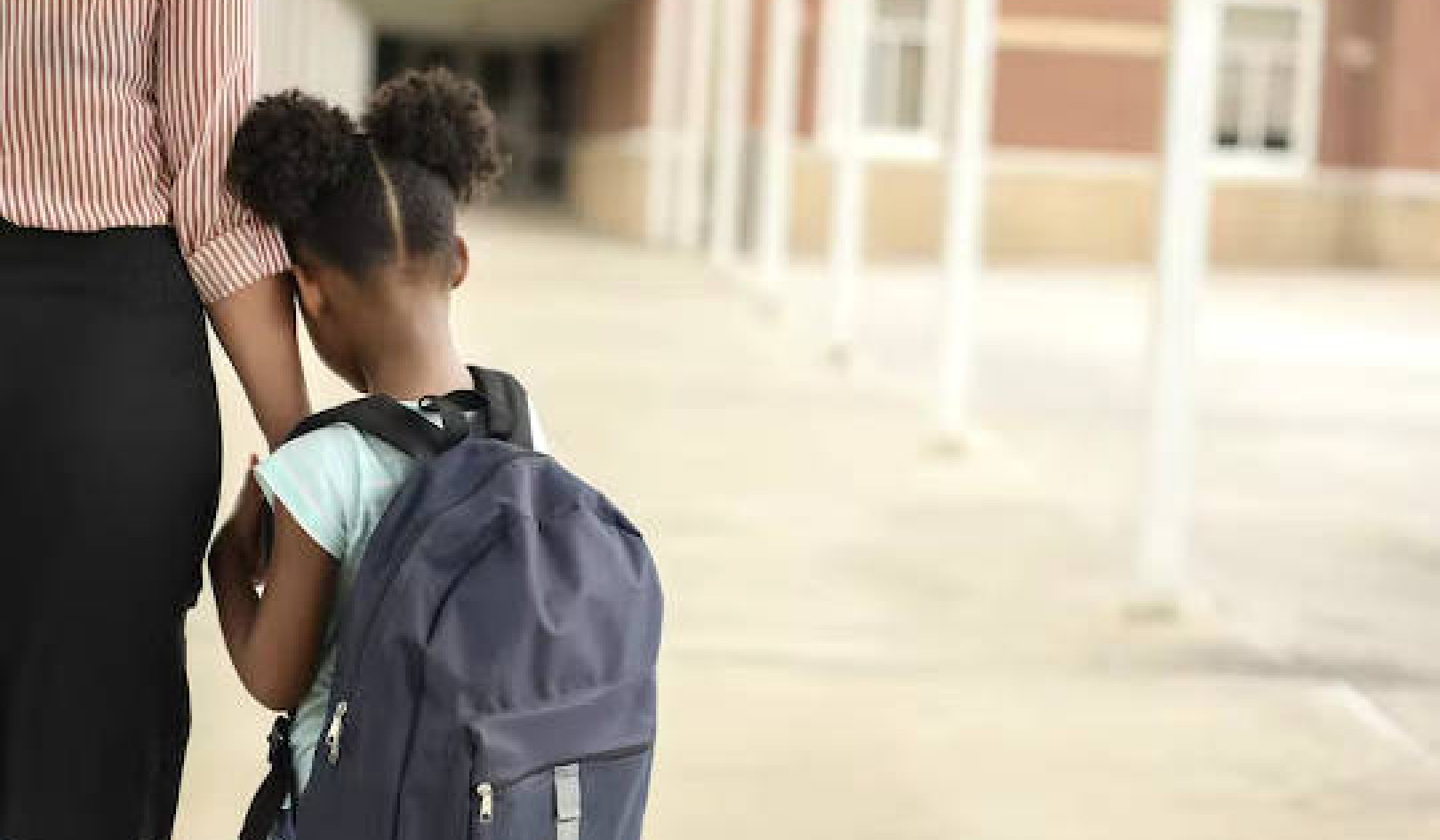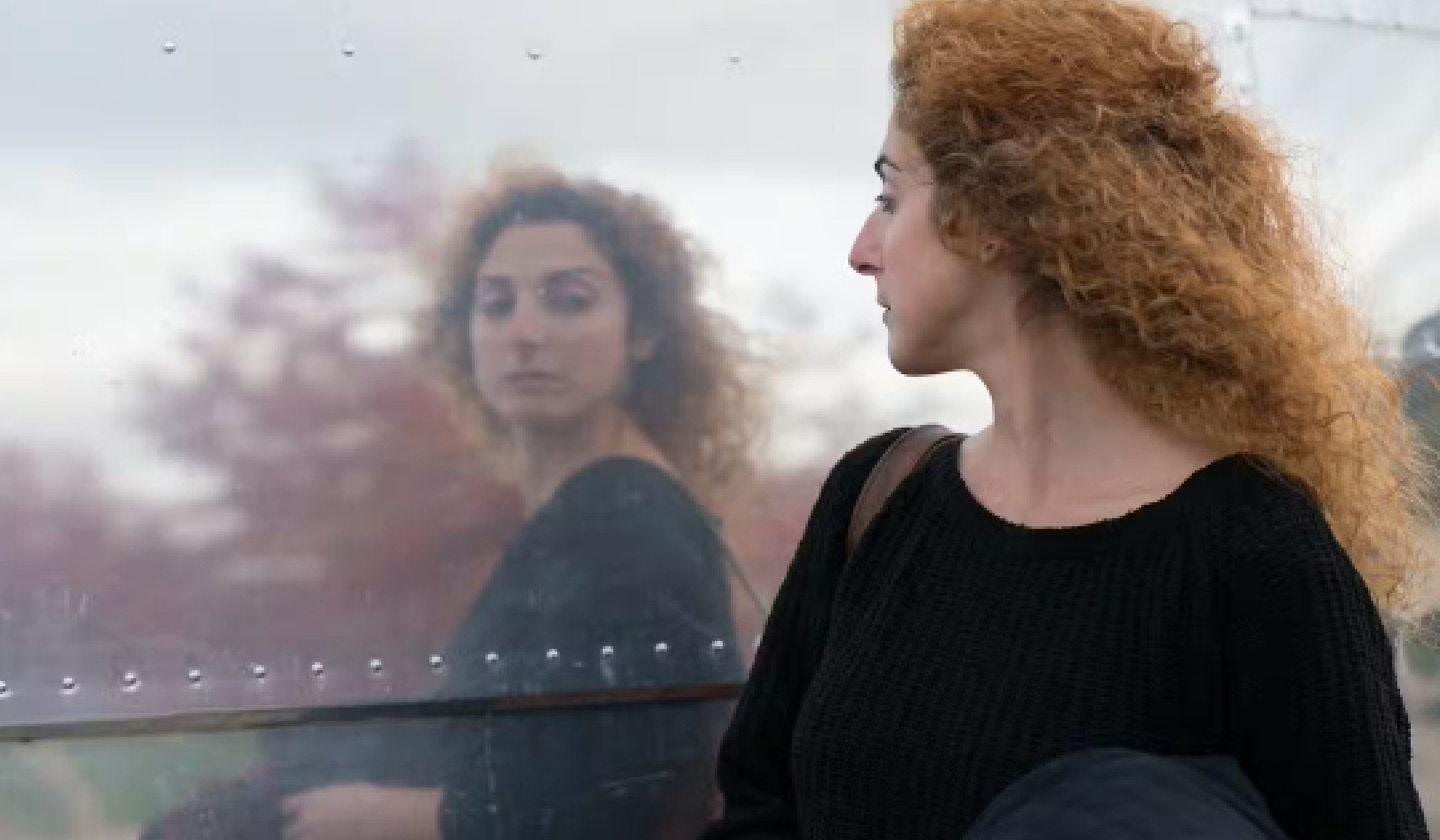
The worst dreams. Creativa Images/Shutterstock.com
If you believe in the paranormal you might not be surprised if you hear stories of deceased loved ones appearing during the night, huge explosions heard just as someone is drifting off with no obvious cause, and other peculiar occurrences. But what if you don’t?
My interest in the paranormal started with an impromptu coffee with a colleague, Chris French, who researches reports of paranormal experiences. He told me stories of countless people who had recounted such events. These experiences tended to start while lying in bed. Then something unusual would happen – perhaps a demon would appear or the environment would seem strange or there would be a sensed presence. The person having this experience might also report being glued to their mattress, tarmacked into the bed, totally unable to move.
It’s unsurprising that people who experience such things might interpret them as paranormal. But certain phenomena such as sleep paralysis provide an alternative to paranormal explanations for such occurrences. Hence my interest in the subject, as a sleep researcher.
Sleep paralysis
When we sleep, we cycle through different stages. We start the night in non-rapid eye movement (NREM) sleep – which gets progressively deeper. We then cycle back until we hit rapid eye movement (REM) sleep. During REM sleep we are most likely to have vivid dreams. At this stage we are also paralysed, perhaps as a safety mechanism to stop us acting out our dreams so that we don’t end up attempting to fly.
But during sleep paralysis, features of REM sleep continue into waking life. Those who experience it will feel awake yet might experience dream-like hallucinations and struggle to move. This experience is pretty common, occurring in around 8% of people (although estimates vary dramatically depending on who we are asking). It’s even possible to induce sleep paralysis in some people, by disrupting their sleep in specific ways.
Certain researchers, French among them, believe that this explains a huge number of paranormal accounts. Information about sleep paralysis is finally seeping into public awareness, but we now need to understand more about this common complaint.
Our preliminary work, which I recount in my new book Nodding Off: The science of sleep from cradle to grave, hints at possible genetic and environmental explanations for why some people are more likely than others to experience sleep paralysis. This now needs to be replicated using much larger samples. Reviewing the literature, we have also highlighted a host of other variables associated with this common experience, including stress, trauma, psychiatric difficulties and physical illnesses.
Exploding head syndrome
Sleep paralysis aside, how else are sleep researchers helping to explain paranormal experiences? People sometimes describe experiencing huge explosions during the night which simply can’t be explained. There is no sign that a shelf has fallen down or a car has backfired. There is no one playing the electric guitar next to their head.
Again, this can be linked to our sleep - this time explained by “exploding head syndrome”, a term coined relatively recently by the neurologist JMS Pearce. When we fall asleep, the reticular formation of the brainstem (a part of our brain involved in consciousness) typically starts to inhibit our ability to move, see and hear things. When we experience a “bang” in our sleep this might be because of a delay in this process. Instead of the reticular formation shutting down the auditory neurons, they might fire at once.
As with sleep paralysis, this phenomenon is also under-researched. For this very reason, in 2017 my colleagues and I joined forces with BBC Focus and Brian Sharpless, a leading expert on this phenomenon, to collect data on this topic.
Imps and ghouls
Finally, what might scientists make of precognitive dreams? We might dream of a friend we haven’t seen for years only to have them call us the very next day. French thinks science can provide an explanation for this too. Referencing work by John Allen Paulos that focuses on probabilities, he explains how such an occurrence may be surprising on any single day, but over time, quite likely to occur.
Researching my book, I spoke to Mrs Sinclair, who is 70, and lives alone. She told me about what she had thought was a ghost living in her house, an imp throttling her during the night and other things that had left her petrified. Having scientific explanations provided her with immense comfort and she no longer believes in paranormal explanations for the things that she experienced.
Our hope is that scientific explanations of paranormal experiences might help others by lowering anxiety. Decreasing anxiety has also been hypothesised as a potential method by which to reduce sleep paralysis. So, perhaps providing more information about these unusual experiences might even mean that things are less likely to go bump in the night.
About The Author
Alice M Gregory, Professor of Psychology, Goldsmiths, University of London
This article was originally published on The Conversation. Read the original article.
Related Books
at InnerSelf Market and Amazon
























